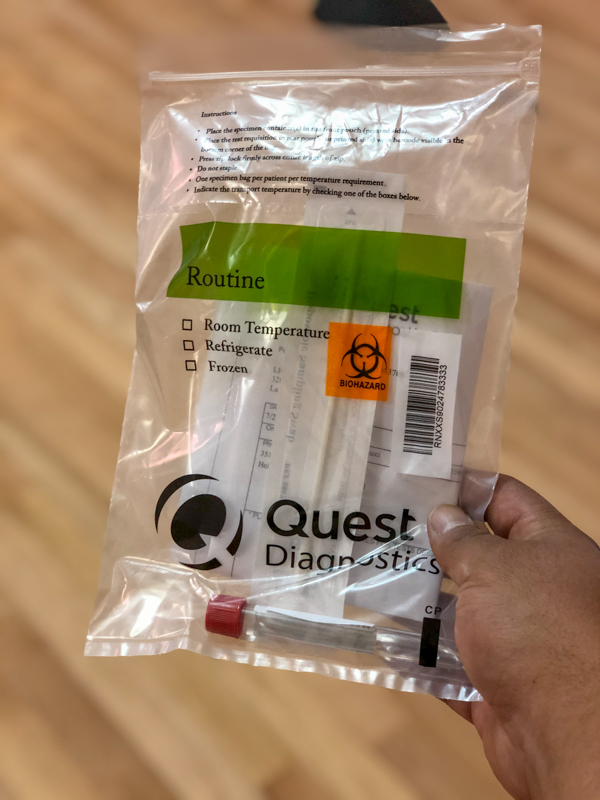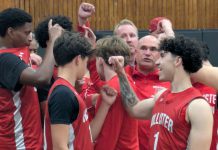In July, a 59-year old Hollister resident and her 75-year-old husband went to a scheduled appointment at Hazel Hawkins Memorial Hospital for a Covid-19 test. At the time, she said they thought they were being responsible by doing the right thing only to find out they were charged with emergency room costs.
She said they are both on Medicare with a very good supplemental plan but that the insurance wouldn’t cover the charges.
Since then, I wanted to know what was the easiest, fastest and least expensive route when it comes to taking a Covid-19 test.
I called the hospital to find out the details on scheduling an appointment there. It turns out they don’t charge for the testing kit itself, but an emergency room fee is tacked on for people who use the drive-thru services.
An emergency room fee is something that I can’t afford right now so they told me to reach out to LHI, which is a subsidiary of OptumServe. San Benito County’s no-cost Covid-19 testing site is powered through a partnership with OptumServe, which is a federal government health services business.
According to county officials, OptumServe has worked closely with the military under the leadership of former Army Surgeon General and retired Lieutenant General Patty Horoho.
The LHI website (lhi.care/Covidtesting) was easy to navigate and that’s where I filled out an application, provided some basic information and scheduled an appointment July 19 at the Veteran’s Memorial Building located at 649 San Benito Street.
There were no signs of any symptoms and I hadn’t come in contact with anyone, at least nobody I knew, who contracted the virus. Still, I’m always coming into contact with several people throughout the week because of my job and I felt like it was the right thing to do.
I went down to the Veteran’s Memorial Building that Sunday afternoon to get tested. I was a bit nervous because of the stories I heard about how uncomfortable it was to have PCR testing done, which is having a nurse or doctor stick a swab with a soft brush tip that goes up a person’s nose.
Instead, I got a test kit that included a regular cotton swab that the nurse rubbed inside both of my nostrils. She sealed it up and got it ready to be sent to the lab. It wasn’t painful at all and I probably lucked out by not having a brush shoved to the back of my throat. Yet, I had to wait four to six business days before I’d get any results.
Before leaving, I asked the nurse at the testing site if the cotton swab was just as effective as the brush and she replied yes. But how truly effective is it?
Johns Hopkins University released a fact sheet about Covid-19 and it displays the two types of testing: serology tests and viral tests. Both tests serve different purposes and have different limitations.
A serology test is a blood test that looks for evidence of someone’s prior infection with the virus, according to Johns Hopkins. “The test provides evidence that someone may have been exposed to the virus in the past, potentially even if they did not have symptoms, by detecting antibodies specific to the virus.”
The viral test is an oral or nasal swab or saliva test that looks for evidence of an active viral infection. The two major types include a PCR test and an antigen test.
According to Johns Hopkins, PCR tests look for the presence of a virus’s genetic material, while antigen tests look for specific proteins on a virus’s surface. Antigen tests produce results more quickly but may be less sensitive.
A story on the Medical Xpress website reported a saliva-based test that could potentially produce results in 45 minutes is in the works. The test, which is designed for widespread screening to help identify asymptomatic individuals, is currently being developed at the BioFrontiers Institute at the University of Colorado Boulder.
The only free viral testing in the area is at the Veteran’s Memorial Building, which I took advantage of. A couple of days had gone by after the test. The thought of the test results kept brewing in the back of my mind but it wasn’t until July 22 when I began to feel some anxiety, thinking “What if I am positive?”
My partner, Marlene Juarez, also took the viral test on July 19 after she returned from a trip to Guadalajara, Mexico. She said she wasn’t sure what to expect leading up to the test, especially after she heard so many different versions of how the test is conducted.
“It wasn’t as bad as I’d heard,” she said. “In fact, it wasn’t uncomfortable at all. They’re very organized at the Veterans Center. Everything was done safely and in a timely manner.”
Marlene said she was in and out the building in five minutes. She was told the results would take four to six days.
“It was a little nerve racking and it definitely tested my patience a little bit,” she said. “But to me it was worth it if it means keeping my loved ones safe.”
Her dad is in the high risk group for Covid-19 so she had to quarantine within her own house to not risk his health. Five days later she received a text message saying that her results were ready.
“I immediately became emotional,” she said. “It was like a huge weight had been taken off. It was at that moment I realized just how scared I had been to possibly testing positive since I had traveled recently and been in airports. By the grace of God I was negative.”
I got an email on Saturday, Aug. 1, from LHI saying that my results were ready, as well. It was the moment of truth and to my relief the letter read: “To Juan Reyes, Your Covid-19 test result is Negative.”
A weight had been lifted off my shoulders too. It was great to finally know there was no Covid-19 running through my body but I don’t believe the testing stops there. There are times when a second test is needed.
LHI offers free viral testing to all residents with a focus—but not limited—to underserved populations, healthcare employees, essential workers and those older than 60 years old. Appointments are available by calling 888-634-1123 or going online at lhi.care/Covidtesting.










